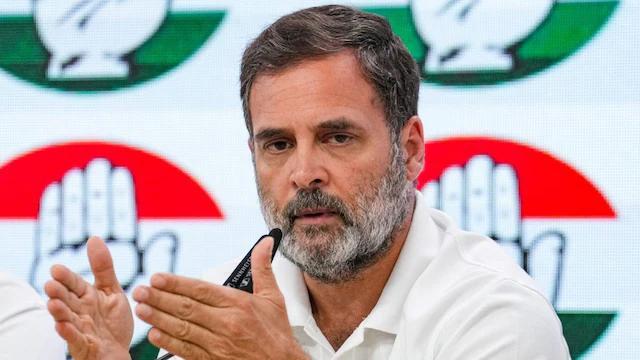
Rahul Gandhi Gets Bail in Defamation Case Over Remarks on Army
In a significant development, Congress leader Rahul Gandhi was granted bail by the Lucknow MP-MLA court on Tuesday in a 2022 defamation case over his alleged derogatory remarks about the Indian Army during the Bharat Jodo Yatra. The court approved Gandhi’s bail plea, requiring him to furnish two sureties of ₹20,000 each for his release.
Gandhi surrendered before the court, marking the beginning of his release process. His lawyer filed a bail plea on his behalf, citing the grounds that the allegations against him were baseless and that he had already apologized for his remarks.
It is worth noting that Gandhi had made the alleged derogatory remarks about the Indian Army during the Bharat Jodo Yatra, a 3,500-kilometer-long march from Kanyakumari to Kashmir. Gandhi had claimed that the Indian Army was involved in the killings of farmers in Punjab, which sparked widespread outrage and led to several defamation cases against him.
The case was filed by the Uttar Pradesh government on behalf of the Indian Army, seeking damages of ₹1.04 crore for alleged damages to the Army’s reputation. The court had earlier summoned Gandhi, asking him to appear in person and explain his remarks.
Gandhi’s bail comes as a relief for the Congress party, which has been critical of the Indian Army’s handling of the situation. The party had been urging the government to withdraw the case against Gandhi, calling it a political vendetta.
The development has also sparked a fresh debate over the limits of freedom of speech and the role of the judiciary in resolving defamation cases. Critics have argued that the case against Gandhi was an attempt to silence him and muzzle his criticisms of the government.
Supporters of Gandhi have hailed the court’s decision as a victory, saying that it vindicates his right to express his opinions. “Rahul Gandhi’s remarks were a genuine expression of his views, and the court has recognized that,” said a Congress spokesperson.
The case against Gandhi is not the first of its kind, with several other defamation cases pending against him over his alleged derogatory remarks about various institutions, including the Supreme Court and the Rashtriya Swayamsevak Sangh (RSS).
In recent years, there has been a surge in defamation cases filed against politicians, journalists, and activists, with many critics arguing that the cases are an attempt to silence dissenting voices and stifle free speech.
The Lucknow MP-MLA court’s decision to grant Gandhi bail is a significant development in this context, and it may set a precedent for other cases involving politicians and public figures.
In conclusion, Rahul Gandhi’s bail in the defamation case over his remarks on the Indian Army is a significant development that has implications for the limits of freedom of speech and the role of the judiciary in resolving defamation cases. While the case has sparked a fresh debate over the limits of free speech, it also highlights the need for caution in filing defamation cases against public figures.
Sources:






